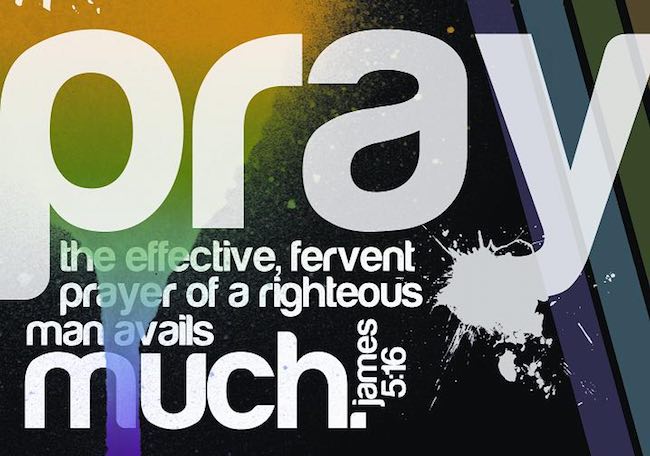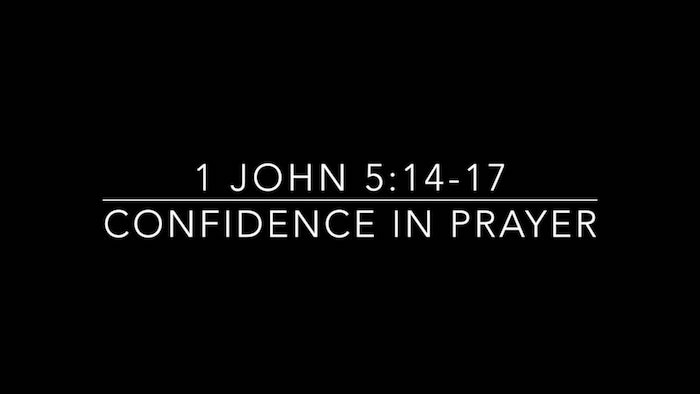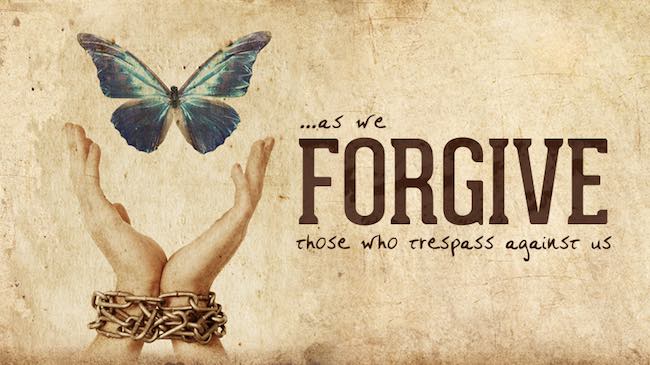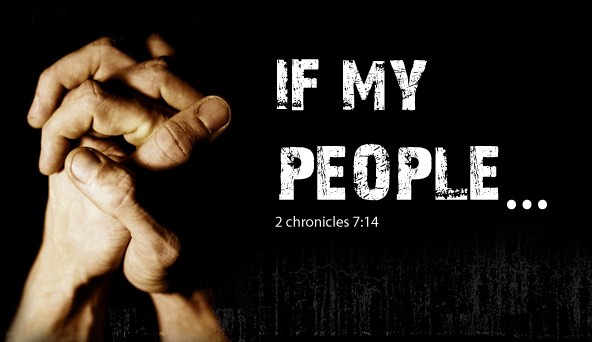When Nehemiah first heard about the deplorable situation of the city of Jerusalem and of the people living in it, he responded by seeking the LORD in prayer:
…let Your ear now be attentive and Your eyes open to hear the prayer of Your servant which I am praying before You now, day and night, on behalf of the sons of Israel Your servants,… – Nehemiah 1:6
Nehemiah was overwhelmed by what he had learned about the state of Jerusalem and he brought his request before the King of Kings. The LORD heard his prayer and Nehemiah himself became the main instrument of God to restore the city of Jerusalem and to bring hope to the people of Israel.
Prayer is a vital part of life. Faith in God is the foundation of a spiritual relationship with God (Heb. 11:6) and prayer is one of the main vehicles that we use to communicate with God.
While Yeshua was on earth He taught His disciples to pray (Luke 11:1-4), He exhorted them to continually pray and to never give up (Luke 18:1-8), and He demonstrated a life of prayer to His Father in heaven (John 17). Prayer was never meant to be diminished to a religious exercise but rather to be a continual lifeline to the Creator of the universe and a means of communicating with Him.

Encouragement to Pray
The Bible is filled with examples of people who prayed as well as instructions for us regarding how to pray. In the first letter of John in the New Testament, we read the following encouragement to pray and make requests of God:
These things I have written to you who believe in the name of the Son of God, so that you may know that you have eternal life. This is the confidence which we have before Him, that, if we ask anything according to His will, He hears us. And if we know that He hears us in whatever we ask, we know that we have the requests which we have asked from Him. – 1 John 5:13-15
As John nears the conclusion of his letter, he begins by clarifying that one of the reasons that he has written this letter was to reassure the believers of his day of the eternal life which is found in Yeshua, the Son of God. It is from this position of knowing one’s relationship with God through the Messiah that John encouraged his readers to pray.
Confidence in Prayer
John reminds us in these verses that the prayers of those who have faith in Yeshua as the Son of God are guaranteed to be heard by God if our prayers are in accordance with God’s will. John has also reassured us that there is confidence regarding the outcome of these requests based on the knowledge that God hears us.
John was not promoting a “prosperity gospel” theology that enables us to feed our flesh for whatever we may crave. Instead, believers in Yeshua are clearly instructed in these verses to pray confidently according to the will of God in order to see His will accomplished on earth. This instruction is in complete agreement with what Yeshua taught His disciples regarding praying for God’s kingdom to come and His will to be done (Matt. 6:10).
There is a tremendous authority in our prayers as we pray according to God’s will. The prophet Daniel illustrated this through his recorded prayer after the fall of Babylon (Daniel 9). I believe many in the global believing community today either don’t pray or pray with timidity because they don’t understand this basic truth. Believers today must be confident in their standing before God in the name of Yeshua the Messiah and they must be sure of what God’s will is. It is from this perspective that all believers in Yeshua can pray with complete confidence.

Understanding Sin
As we broach this subject of confidence in prayer, it is impossible to ignore the issue of sin. In John’s letter, he immediately addresses this issue of sin in the continuation of his exhortation to pray:
If anyone sees his brother committing a sin not leading to death, he shall ask and God will for him give life to those who commit sin not leading to death. There is a sin leading to death; I do not say that he should make request for this. All unrighteousness is sin, and there is a sin not leading to death. – 1 John 5:16-17
John was specifically addressing the situation of praying on behalf of another believer who has sinned. When praying on behalf of another John warned his readers that they should not pray for someone who has committed a sin leading to death. What does this mean? What is the sin that leads to death?
Watch this video to discover the answer to the question of the “sin unto death”
Sin Leading to Death
In studying this section of Scripture, it is clear that a better rendering of the Greek translation for the phrase “a sin leading to death” would be, “sin leading to death.” It is not one specific sin, for example stealing, but rather a particular category of sin which leads to death. Which sins fit into this category? I believe that the answer to this question is found in this week’s Torah Portion.
In the Torah there are many specific sins which are punishable by death. In this week’s Torah Portion we read about a unique command which identifies a type of sin which leads to death:
If any man has a stubborn and rebellious son who will not obey his father or his mother, and when they chastise him, he will not even listen to them, then his father and mother shall seize him, and bring him out to the elders of his city at the gateway of his hometown. They shall say to the elders of his city, ‘This son of ours is stubborn and rebellious, he will not obey us, he is a glutton and a drunkard.’ Then all the men of his city shall stone him to death; so you shall remove the evil from your midst, and all Israel will hear of it and fear. – Deut. 21:18-21
The Torah doesn’t mince words. This particular situation demanded a very sharp judgement and heavy penalty, death. Carrying out this command today is not even an option, however, the principle of sin which leads to death is well illustrated.
Identifying the Sin which Leads to Death
This command of dealing with a rebellious child, whom we’ll call “the person,” contains several unique conditions that I would like to highlight:
- The person is identified with the nation of Israel (a child of Israelites).
- The person is marked by a lifestyle of stubbornness and rebellion.
- The person is chastised and disciplined by his parents to no avail.
- The person is characterized by living a life of debauchery.
- The person is handed over by his own parents to the city elders.
- The person is judged by the city elders and condemned to death.
There is not a single sin which is identified in this context which would bring death but rather a consistent lifestyle which disqualifies such a person from the community of Israel. Moreover, the person is identified as one who is rebellious and does not respond to discipline. It is this characteristic of rebellion and a refusal to repent which ultimately condemns the person to death. We see a similar example of sin leading to death which is characterized by a rebellious spirit later in the book of Deuteronomy (Deut. 29:14-21).
I believe God purposely did not identify this “sin leading to death” in 1 John 5:16-17 to allow each generation to interpret this command in their context and community. There can be any variety of sins which may be identified in one’s life but the condemning factor is that of an unrepentant heart.

An Unrepentant Heart
There is no doubt that all of us have been guilty of sinning and we still sin from time to time in our journey with God. This is a reality of life. John himself emphasized this point earlier on in this same letter (1 John 5:8-10). We all sin! The lifestyle of the believer, however, is not to be marked by practicing sin (1 John 5:5-7) but of repenting and turning from sin.
The warning that John gives in 1 John 5:16, regarding not praying for one who has committed sin unto death, is specifically referring to a believer, a “brother.” If a person calls him or herself a believer in Yeshua and refuses to repent from known sin or a lifestyle of sin, they are in danger of committing a sin unto death. We should not pray for those who continually refuse to repent from sin. Through one’s own stubbornness he or she has chosen to cut him or herself off from the community of believers (Matt. 18:15-17).
Ananias and Sapphira
We see an extreme example of this in the lives of Ananias and Sapphira in the book of Acts. They had sold a piece of land and brought the proceeds to the apostles and acted like they were giving a donation for the full sale price, however, they had kept some of the profit for themselves.
When Peter was made aware of the situation he didn’t pray for Ananias or Sapphira. Peter confronted Ananias with his wickedness and he was immediately judged by God and dropped dead (Acts. 5:1-6). Three hours later when Sapphira came in, Peter asked her about the sale price and rather than admitting the truth she confirmed the lie. Rather than repenting she continued in her rebellion. Sapphira also died in her sin (Acts 6:7-10).
This is not an everyday occurrence, however, the lesson to be learned from the story of Ananias and Sapphira is very practical. There is a spiritual authority that all believers carry in the name of Yeshua. It is a great privilege and responsibility to pray for others in the name of Yeshua in order to be healed and set free from sin. If other believers are living in a life of sin and chose not to repent from their sin, there is nothing left to be done for them.
We must know those for whom we’re praying and use the authority that God has bestowed upon us in a fitting manner. In other words, there is a time to pray for another and a time not to pray. We need to use and exercise spiritual discernment in our prayer life.
Authority & Forgiveness
It is sometimes easy to want to be black and white in our spiritual walk but we need to continually learn to walk in truth and grace. We should not be quick to judge but rather quick to forgive.
Immediately after Yeshua instructed His disciples about how to deal with a brother who has sinned, Yeshua taught His disciples about the authority that He was giving to them to bind and loose in His name (Matt. 18:15-20). Peter then asked Yeshua regarding the number of times to forgive a brother. Peter thought he was being generous by suggesting “up to seven times?” Yeshua responded with the famous reply, “I do not say to you, up to seven times, but up to seventy times seven” (Matt. 18:22).
Yeshua was clearly illustrating that there should never be a limit in our forgiving others. Yeshua then continued with a parable to illustrate His point by telling the story of a king who forgave his slave of a great debt. This slave who had his debt forgiven then went out and demanded to be paid back by another fellow slave. This second slave begged for mercy but the former slave was heartless. When the king heard of this incident he called his slave back to him and Yeshua concluded the story in this way:
Then summoning him, his lord said to him, ‘You wicked slave, I forgave you all that debt because you pleaded with me. Should you not also have had mercy on your fellow slave, in the same way that I had mercy on you?’ And his lord, moved with anger, handed him over to the torturers until he should repay all that was owed him. My heavenly Father will also do the same to you, if each of you does not forgive his brother from your heart. – Matt. 18:32-35
Peter had thought that this new spiritual authority gave him the right to set the standard but Yeshua gave Peter a humble reminder that he needs to remember who is King and to always be merciful! Forgiveness is key to an effective spiritual walk with God and an effective prayer life.

The Necessity of Forgiveness
At the heart of the “Lord’s prayer” that Yeshua taught to His disciples is the necessity of having one’s sins forgiven before God and forgiving the sins (debts) of others (Luke 11:4). We see this clearly explained in Yeshua’s own words following the Lord’s prayer in the gospel of Matthew:
For if you forgive others for their transgressions, your heavenly Father will also forgive you. But if you do not forgive others, then your Father will not forgive your transgressions. – Matt. 6:14-15
Forgiveness of sins between one human being and another, as well as between humans and God, is foundational to our prayer life. Unconfessed or unforgiven sin will hinder our prayers!
First and foremost, we must continually repent from our own sins in order to receive forgiveness from God and be willing to forgive others. It is from this foundation of forgiveness that we can walk in full authority and pray in confidence in the name of Yeshua according to the will of God. “And if we know that He hears us in whatever we ask, we know that we have the requests which we have asked from Him.” (1 John 5:15)
Shabbat Shalom!
If you enjoyed reading this article, share it today with friends! We also invite you to sign up for our weekly Torah Portion commentary on the sidebar to the right.
Help keep our weekly commentaries free and available to all. Click here to donate today:
Torah Portion: Deut. 21:10 – Deut. 25:19
Haftara: Isaiah 54:1-10
Return to Torah Portion Homepage
Copyright Jewels of Judaism. All rights reserved 2016



The theme regarding the “sin leading to death” has some “spiritual mystery”. Some time ago at a meeting we were discussing this subject. Now the explanation in this article helps me to comprehend this subject much better. The connection of the authority in prayer as the result of a forgiving heart with the spirit of discernement, for sure all together make the difference in our lifestyle as believeres in Christ. Amen and amen!
Thanks Daniel, Shalom!
It is encouraging to hear how this teaching has helped.
Thanks Yazmin.
Daniel
Thanks for bringing up a difficult passage on 1 John 5:16. Since I read the passage (and also after the Torah Watch) I’ve been thinking and meditating on this passage.
To me, there are two difficulties in this verse, one is what is ‘sin that leads to death’ and what is ‘pray about that’. Most of the commentaries discuss the first problem. After a brief research on this issue, I agree with you that the ‘unrepentant heart’ is probably the best answer. However, what does it mean by ‘pray about it’? Pray for what?
Let’s use Duet. 21:18-21 as an example. If I was the parents of the rebellious son, even though my heart might be broken thousands of times, I will still pray for my son’s repentance and hoping that one day he would repent.
So I believe that here when the Apostle John said, “I am not saying that you should pray about that” means we should not pray for forgiveness (life, from the context) for those who didn’t repent from their sins that lead to death.
Interestingly, the two ‘pray’ in English translation (also in Chinese version) in this verse actually is two different words. The first ‘pray’ is ‘aiteo’ mostly means ‘ask for’, ‘desire’, also ‘beg’ and ‘require’. The second one is ‘erotao’ means not only ‘desire’ or ‘pray’ bout also ‘ask question’. So some commentators suggest that here we can understand it like, “To ask God why this person is led to death.”
And from the entire context of 1st John, ‘sin that leads to death’ can also point to false teachings which leading believers astray from the Truth. But I still think that even in John’s heart might had been thinking of those false teachers, but the ‘unrepentant heart’ should be the main reason for death. And we shouldn’t ask God to forgive them if they didn’t repent. But we may pray for their repentance.
This is the insight I’ve got from this week’s commentary. Thanks for putting effort on it.
Hi Nancy,
Thanks for your thoughts and insights. I’m glad you’ve spent time wrestling with these verses. As I mentioned in the commentary, it is not a black and white issue. We need to do our best to understand what God is saying to us through this warning to not pray for “a brother” who has committed a sin unto death. I believe this type of situation must always be something that the whole community is in agreement on. We cannot make individual judgements like this. This sin of a continual unrepentant heart and not turning from sin is also connected to “blasphemy of the Holy Spirit.” You can take a look at this article as well: http://jewelsofjudaism.com/?s=Blasphemy
Thanks for your input.
Daniel
Loved the word. Was blessed with the commentary. Thank you Daniel for the sharing.
You’re welcome. I appreciate the feedback Cindy.
Great word brother
Thanks Jason!